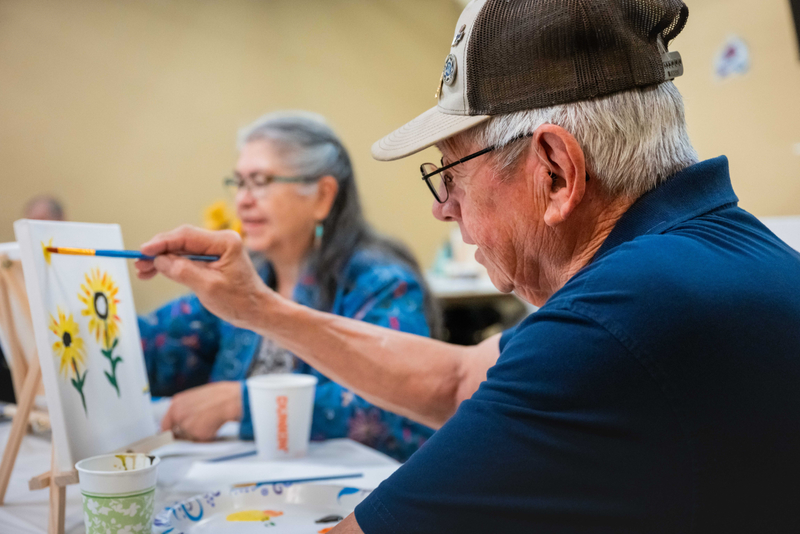Healthspan & Wellness
Simple Tips for Extending Your Healthspan at 60+

As we grow older, it’s essential to adjust our habits to not only add years to our lives but also to enhance the quality of those years. Healthspan refers to the period of life spent in good health—free from chronic illness and able to enjoy an active, fulfilling lifestyle. One of the best ways to extend your healthspan is by embracing the Five Pillars of Health, which focus on key areas of well-being that support physical, mental, and emotional health. Following is an updated approach to these pillars, specifically tailored for the 60+ population, along with practical tips for integrating them into your daily life.
The Five Pillars of Health
Stay Active: Staying active is key to aging well—it supports heart health, strengthens muscles, and improves balance. The Centers for Disease Control (CDC) recommends that adults aged 65+ get at least 150 minutes of moderate-intensity exercise per week (such as walking, swimming, or biking) to keep the heart healthy and the body strong. It’s also important to include balance exercises and strength training at least twice per week.1 As you lift weights, be sure to target all major muscle groups and address any areas of weakness to maintain overall strength and mobility. To meet your recommended activity levels, consider joining an exercise group for added accountability, or find a friend who’s committed to working out with you regularly.Prioritize Nutrition: As we age, maintaining proper nutrition becomes even more important. Experts highlight several key nutrients—such as protein, omega-3 fatty acids, fiber, vitamins B6, B12, and E, calcium, magnesium, and potassium—that are often lacking in older adults' diets.2 To address these potential deficits and for optimal nutrition, focus on a variety of whole foods like fish, lean proteins, nuts, fruits, vegetables, whole grains, and low-fat dairy while reducing refined grains, processed foods, and added sugars.
Improve Sleep: Getting quality sleep can become more challenging as we get older. To promote restful sleep, establish a soothing bedtime routine—such as reading, dimming the lights, or enjoying a warm bath. Avoid screens and heavy meals in the evening to help signal to your body that it’s time to wind down. If you experience sleep difficulties like insomnia or sleep apnea, consulting a healthcare professional can provide personalized solutions.
Challenge Your Brain: Keeping your mind active and engaged is just as important as physical health. Start a new hobby like painting, gardening, or playing a musical instrument. Puzzles and brain games can help you stay mentally sharp, or consider exploring online courses to learn something new.
Foster Social Connections: Social engagement enhances emotional well-being, reduces loneliness, and even boosts immunity. Host game nights, attend community classes, join a reading group, enjoy meals with family and friends, or volunteer for a cause you’re passionate about to foster meaningful relationships. Additionally, studies have found that grandparents who watch their grandchildren live significantly longer lives.
Where do I go from here?
Start small by choosing one pillar to focus on, stay consistent, and you’ll find that incorporating these new habits into your routine will pay off. Most importantly, enjoy the process. Aging isn’t about giving up on new experiences—it’s about embracing them!References
1CDC Guidance2Institute of Medicine (US) Food Forum. Providing Healthy and Safe Foods As We Age: Workshop Summary. Washington (DC): National Academies Press (US); 2010. 5, Nutrition Concerns for Aging Populations. Available from: https://www.ncbi.nlm.nih.gov/books/NBK51837
More News
-
New!
More

Screening Secrets: What Every Man Should Know About Prostate Cancer Screening
Prostate cancer is the most common type of non-skin related cancer in men, and it is the second leading cause of cancer-related deaths in men within the United States, behind lung cancer. Fortunately, if caught early, prostate cancer remains highly treatable and curable with minimally invasive procedures.
-
New!
More

Unplug to Recharge: Why a Digital Detox Is the Real Power Move for 2026
Our phones promise connection, convenience and control, yet most of us feel more scattered, stressed and sleepless than ever. The constant pings, scrolls and notifications have rewired our brains for distraction. The fix? Not abandoning technology altogether, but reclaiming balance.
-
New!
More

Beyond the Scale: Why Nutrition and Exercise Work Better Together
For decades, weight loss advice has been distilled into a simple equation: calories in, calories out. Eat less, maybe combine that with exercise, and the pounds will fall away. But according to experts at Vail Health, that equation overlooks a much bigger picture.





